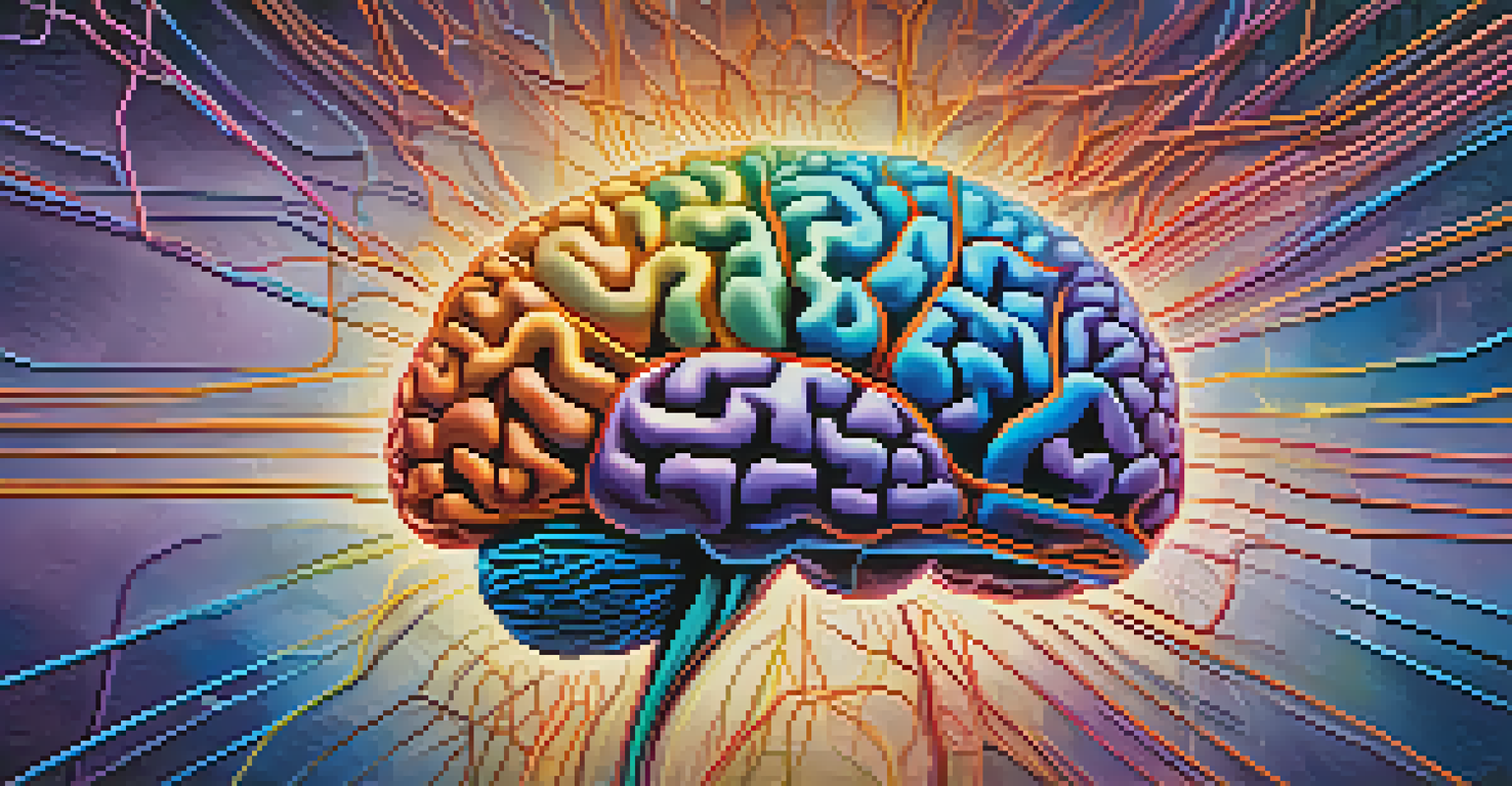Entheogens and Memory: A Review of Clinical Trials

Understanding Entheogens: What They Are and Their Uses
Entheogens are substances that alter consciousness, often used in religious, spiritual, or therapeutic contexts. Common examples include psilocybin, found in certain mushrooms, and ayahuasca, a brew made from Amazonian plants. These compounds have gained attention for their potential therapeutic benefits, particularly in mental health treatment.
The mind is everything. What you think you become.
In recent years, the scientific community has begun to explore how these substances may enhance memory and cognitive function. By examining their effects on the brain, researchers hope to uncover how they might aid individuals suffering from memory-related conditions. This intersection of spirituality and science is paving the way for new therapeutic approaches.
As we delve into the clinical trials that investigate these substances, it's essential to grasp the foundational principles of entheogens. Their historical and cultural significance adds layers to their modern applications, making them a fascinating subject of study in the realm of memory enhancement.
The Science Behind Memory: How We Remember
Memory is a complex process involving encoding, storage, and retrieval of information. It can be likened to a library where experiences are cataloged and accessed when needed. Understanding this process is crucial when investigating how entheogens might influence memory.

Recent studies suggest that certain entheogens can enhance synaptic plasticity, a key mechanism in memory formation. By promoting the growth of new connections between neurons, these substances could potentially improve how memories are formed and recalled. This connection between neurobiology and memory is a vital area of exploration.
Entheogens Enhance Memory Potential
Research suggests that substances like psilocybin and ayahuasca may improve memory retention, especially in emotionally charged therapeutic contexts.
Moreover, researchers are examining how altered states of consciousness induced by entheogens might provide new perspectives on memory retention. By facilitating deeper emotional connections to experiences, these substances may help solidify memories, making them more accessible in the future.
Clinical Trials: What the Research Shows
Clinical trials investigating entheogens often focus on their effects on mental health conditions like PTSD, depression, and anxiety. For instance, studies involving psilocybin have shown promising results in enhancing emotional processing, which can be linked to memory recall. This is encouraging for those looking for alternative treatments.
Memory is the treasure house of the mind wherein the monuments thereof are kept and preserved.
One notable trial examined the effects of ayahuasca on individuals with treatment-resistant depression. Participants reported significant improvements in mood and cognitive function, suggesting a potential link between emotional well-being and memory enhancement. These findings are crucial for understanding how entheogens can impact broader cognitive processes.
As more clinical trials emerge, the data continues to evolve, revealing the intricate dance between entheogens, memory, and mental health. These studies are not just academic; they hold the promise of transformative therapeutic interventions for those struggling with memory-related issues.
Potential Benefits of Entheogens on Memory Retention
Research indicates that entheogens may play a role in enhancing memory retention, particularly in emotionally charged contexts. When combined with therapeutic settings, these substances can create profound experiences that may lead to better memory consolidation. This could be especially beneficial for those dealing with trauma.
For example, one study showed that participants who underwent psilocybin therapy reported vivid recollections of their experiences. This suggests that the substance not only altered their emotional state but also reinforced their memories. Such findings open up exciting avenues for utilizing entheogens in therapeutic memory enhancement.
Therapeutic Benefits for Mental Health
Clinical trials indicate that entheogens can significantly aid in treating conditions such as PTSD and depression, potentially linking emotional health with memory enhancement.
However, it's important to approach these findings with caution. While the potential benefits are significant, further research is needed to understand the long-term effects and risks associated with entheogen use in memory therapy.
Risks and Considerations of Using Entheogens
Despite the promising benefits, the use of entheogens is not without risks. They can induce intense psychological experiences that may be overwhelming for some individuals. It's crucial to recognize that not everyone will respond positively to these substances, which highlights the need for careful screening in clinical settings.
Additionally, the setting in which entheogens are consumed plays a significant role in the outcome. A supportive and controlled environment is essential for maximizing positive experiences and minimizing adverse effects. This aspect is vital in clinical trials and therapeutic applications.
Furthermore, there are legal and ethical considerations surrounding the use of entheogens. As regulations evolve, researchers must navigate these complexities to ensure safe and responsible use in clinical settings. Balancing potential benefits with ethical obligations is an ongoing challenge in this field.
The Role of Set and Setting in Memory Enhancement
The concepts of 'set' and 'setting' are critical when discussing the effects of entheogens on memory. 'Set' refers to the individual's mindset, while 'setting' pertains to the physical and social environment in which the experience occurs. Together, they significantly influence the outcomes of entheogenic experiences.
Research has shown that a positive mindset combined with a safe environment can lead to enhanced memory retention and emotional processing. This underscores the importance of creating a supportive atmosphere in clinical trials where entheogens are administered. The right conditions can amplify the therapeutic potential of these substances.
Set and Setting Matter for Results
The effectiveness of entheogens on memory is heavily influenced by the individual's mindset and the environment in which they are experienced.
Understanding how set and setting impact memory enhancement can help refine therapeutic practices. By focusing on these elements, practitioners can better harness the benefits of entheogens, ensuring that individuals not only remember their experiences but also integrate them into their healing journeys.
Future Directions: What Lies Ahead for Entheogen Research
As interest in entheogens continues to grow, researchers are exploring new avenues for study, particularly regarding memory enhancement. Future trials may investigate the long-term effects of these substances on memory and cognitive function, providing deeper insights into their therapeutic applications. This could revolutionize how we approach memory-related disorders.
Moreover, interdisciplinary research combining psychology, neuroscience, and pharmacology could yield innovative approaches to treatment. By understanding the underlying mechanisms of memory alteration, we can develop targeted interventions that leverage the benefits of entheogens while minimizing risks.

Ultimately, the future of entheogen research holds great promise. With a commitment to rigorous scientific inquiry, we may unlock new pathways for healing and memory enhancement, paving the way for a more profound understanding of the human mind.